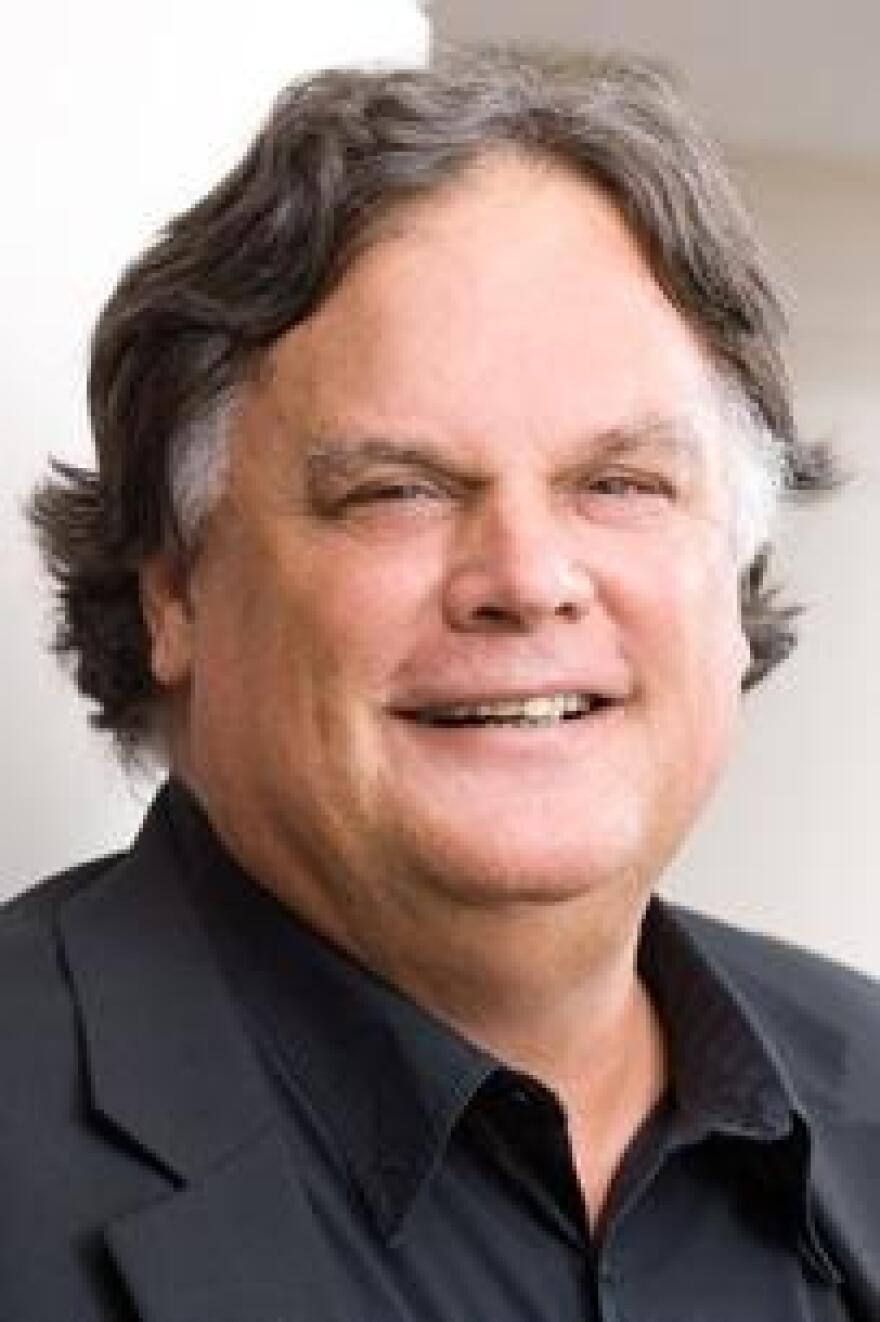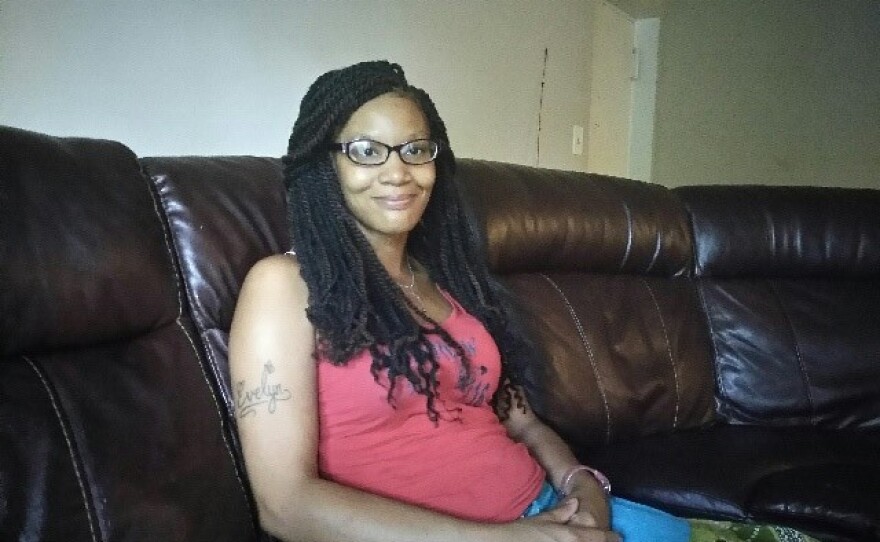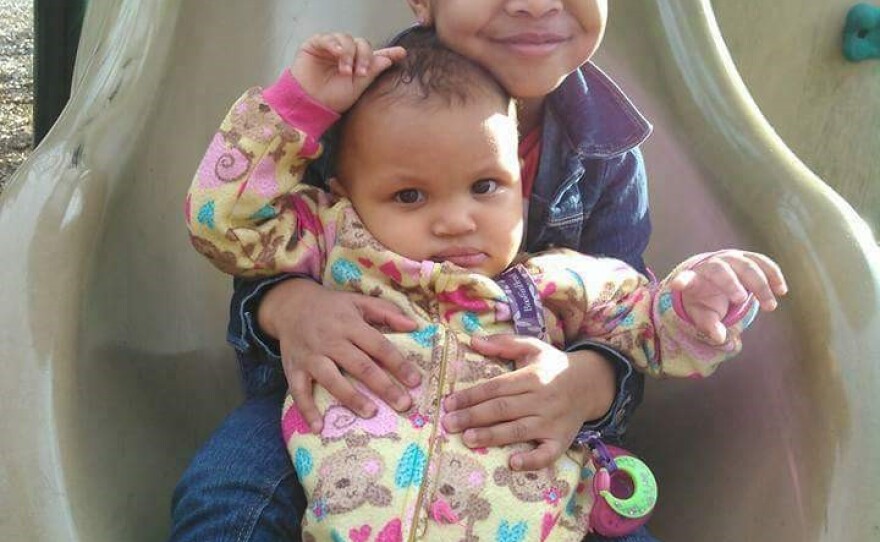This is the second story in a series of four about the barriers people face when trying to get out of poverty. This installment introduces us to a single mother in the Triad area trying to get out of poverty by furthering her education.
In high school, Candice Olds couldn't wait to leave.
So, instead of waiting until graduation, she dropped out of high school at 17.
“It wasn’t for me, so I wanted to go somewhere else and graduate,” she said.
Poverty In The Triad: A Special Report
Poverty and education have an intertwined relationship. It can be difficult to get a good job without a high school or college degree. It’s even more difficult to finish those degrees if a person lives in poverty.
Olds, now 24, was constantly bullied and described herself as anti-social in high school. She felt that getting her high school equivalency would be faster. She added that she didn’t know how to interact with people in general and blames a lot of that on her upbringing.
When she was three-years-old, Olds was taken from her parents by Child Protective Services. She spent her entire life in the foster care system, even though she didn’t have to.
“I was stubborn,” she said on why she didn’t want to be adopted. “I wanted to go back to my mom. A lot of people wanted to adopt me throughout my life—around 6, 11 and even 16 and 17 years old.”
Olds believes her life in foster care had a great effect on who she is now.
“It’s different when a stranger is just taking care of you rather than teaching you how to be a woman and grow up and not really there for you on a personal level,” she said.
Once she dropped out of high school, Olds got her own apartment through Section 8. She applied for it when she was 16. Soon after, she became pregnant with her first child, Ava, who is now 5.
Between motherhood and working, there wasn’t much time to dedicate to getting her GED.
Years later, now with another child named Hazel, 1, Olds tried to take GED courses at Guilford Technical Community College, but it didn’t work out.
United Way of Greater Greensboro created the Family Success Center—a program within Guilford Child Development—that teaches people everyday skills like money management, interview techniques, and GED preparation.
“I decided to go to GTCC but it was taking too long so then I went to Family Success Center and it was the best,” Olds said.

United Way of Greater Greensboro CEO Michelle Gethers-Clark thinks even if someone chooses to get their GED, they still need a set of skills to complement it.
“When we talk about education, there is classroom education and then there is acquiring skills to complement that classroom education and that’s the type of education I’m talking about,” she said. “I’m talking about get your basic reading, writing, arithmetic and then augment that with a set of skills, which for some of us means going to college, but for some of us it’s an apprenticeship. It’s working with someone who teaches you how to be a plumber and you’re the best plumber.”
When Olds started at the Family Success Center this past April, she worked with instructors and mentors and got her GED in just two months.
According to the U.S. Census, 16 percent of North Carolinians who live in poverty obtain their high school diploma or its equivalency.
Gene Nichol is a researcher with the North Carolina Poverty Research Fund. He considers poverty a threat that interferes with education.
“It’s the greatest barrier in terms of college education,” he said. “It’s the greatest barrier in terms of high quality grade school, high school and pre-school education, for that matter, as well.”
Right now, Olds is working at a retail clothing store and as a part-time Uber driver. She plans to enroll in college courses at GTCC in the spring. She wants to then go to the University of North Carolina at Greensboro and become a nurse.

“I’m just excited about where I could be,” she said. “I always see myself somewhere else, doing better than where I am. Even when I get there, I want to always be doing something to succeed and be successful in something else,” she said.









